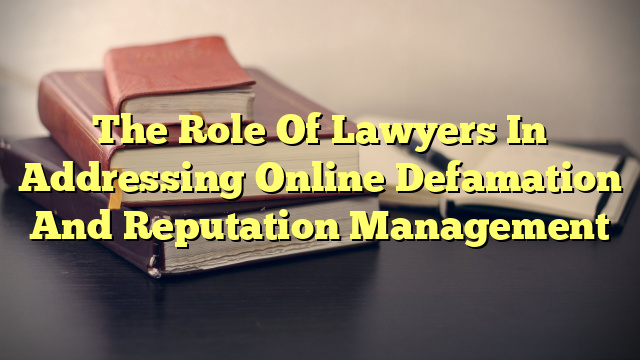Table of Contents
- Definition of Defamation
- What is Defamation Online?
- The Laws of Defamation Online
- Who Determines Harm to Reputation in a Defamation Case?
- How to Deal With Defamation Online
- Can You Sue Someone for Talking Bad About You on the Internet?
- Conclusion
Definition of Defamation
Defamation is a false statement that is made about someone and is harmful to their reputation. It can be either written or spoken. Defamation can also be called slander or libel, but in general, it is simply referred to as defamation.
What is Defamation Online?
Defamation online is a growing issue in today’s digital age. With the widespread use of the internet and social media, defamation has become easier to commit and harder to erase. Defamation online can be any false statement made about someone and published on the internet, including social media, blogs, and news sites.
The Laws of Defamation Online
The law of defamation online is similar to the law of defamation in print. In order to be held liable, the statement must be false, it must be published, and it must be harmful to the person’s reputation. Most states also require that the person who made the statement knew that it was false or acted with reckless disregard for the truth. Additionally, in most states, the person who was defamed must prove that they were harmed by the statement.
Who Determines Harm to Reputation in a Defamation Case?
In a defamation case, the court determines harm to reputation. In order to prove harm to reputation, the person who was defamed must show that they suffered an injury to their reputation. This can be done by providing evidence of lost business or lost opportunities as a result of the false statement.
How to Deal With Defamation Online
The most effective way to deal with defamation online is to contact a qualified attorney. An experienced lawyer can help you evaluate the situation and determine the best course of action. An attorney can also help you understand your legal rights and may be able to negotiate a resolution or settlement with the person who made the defamatory statement.
Can You Sue Someone for Talking Bad About You on the Internet?
In some cases, it may be possible to sue someone for talking bad about you on the internet. However, it is important to understand that in most cases, the person who made the defamatory statement is protected by the First Amendment and can not be held liable. It is important to seek the advice of a qualified attorney to determine if a defamation suit is appropriate in your situation.
Conclusion
It is important to understand the law of defamation online and to take steps to protect yourself and your reputation. An experienced attorney can help you understand the law of defamation online and can help you take the necessary steps to protect yourself. If you believe that you have been the victim of online defamation, it is important to seek the advice of a qualified attorney.


While I recognize the need for lawyers to help tackle online defamation, I think a more holistic approach to reputation management should be taken. For example, investing in proactive branding and monitoring social media sentiment could be effective in warding off defamation in the first place.